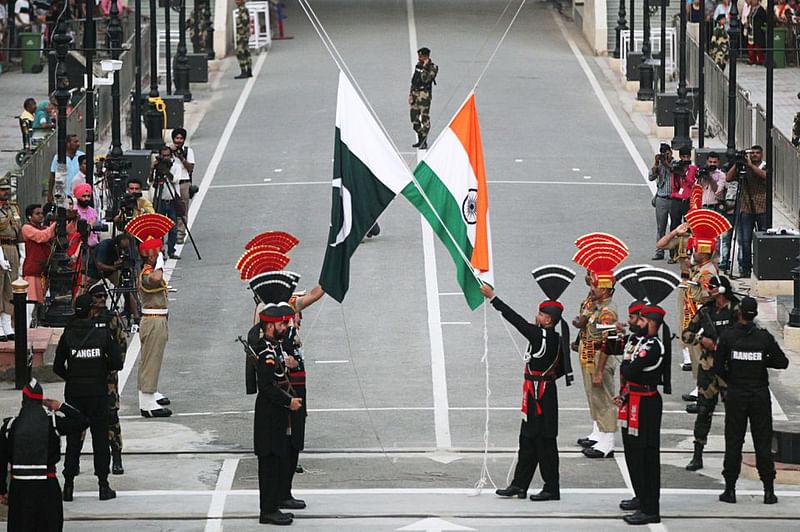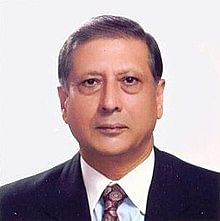POBNEWS24, Dhaka, Nov 8, 2021 :India-Pakistan issue over Kashmir crisis After India and Pakistan became separate countries, Kashmir also became two parts. The two parts of Kashmir, which is controlled by India and Pakistan, have different policies. However, a former diplomat of the country thinks that Pakistan is getting cornered day by day against India on the Kashmir issue. He thinks that Pakistan has also lost support in the international arena on this issue. News Dawn.
Former Pakistani ambassador Javid Hussain has termed Pakistan’s position on Kashmir policy as worse than ever. He is currently the President of the Lahore Council for World Affairs. He said that in the early days of Pakistan’s birth as a state, in the 1940s and 1950s, the UN Security Council could have been found to have taken a decision on Kashmir. However, with the passage of time, it has become difficult.
On August 5, 2019, India made a major change in its Kashmir policy. It was decided to repeal Article 370 of the Constitution, which gives special benefits to Indian-controlled Jammu and Kashmir. The state was divided into two separate Union Territories called ‘Jammu and Kashmir’ and ‘Ladakh’. Pakistan was vocal against India’s move. However, the Security Council avoided the issue. They did not hold a formal meeting considering Pakistan’s allegations.

Javid Hussain thinks that despite major allegations of human rights violations against India in Kashmir, they are gaining the support of the international community. Proof of this is India’s recent election to the UN Human Rights Council. There they have the support of most of the UN member states. Not only in the UN, but also in the OIC, the alliance of Muslim countries, Pakistan is losing ground on the Kashmir issue. Because, after India’s move on Jammu and Kashmir on August 5, 2019, the proposal of a meeting of the foreign ministers of the allied countries was returned.
Javid Hussain thinks Pakistan needs to be stronger to deal with India on the Kashmir issue. But that is not happening at all. Over time, the economic and military power of the two neighboring countries has lost its balance. In both cases, Pakistan lags far behind India. At present, India’s gross domestic product (GDP) is ৫ 3.5 trillion, compared to Pakistan’s িপি 26 billion.
According to the former ambassador, Pakistan’s moral and legal arguments on Kashmir are not being heeded by the international community. Besides, there is a lack of clarity and consistency in Pakistan’s strategic goals and policies towards India and Kashmir. These are making Pakistan’s position against India even more shaky.
The ongoing Sino-US conflict has once again become a headache. India also has conflicting relations with China. Due to this, the friendship between India and the United States is growing. In the light of all this, Sino-Pakistani relations have deepened again. Due to this breakdown, the balance of power in the regional and international arena is changing. Because of this, Javid Hussain thinks that Pakistan is facing a strategic challenge.
Javid Hussain sees the Taliban in power in Afghanistan as a new challenge for Pakistan. Besides, the growing rise of Hindutva in India is becoming a threat to Pakistan. He feared that the situation or India’s position on Kashmir would not be in Pakistan’s favor in the future.

Its geographical location is also responsible for the situation in Kashmir, said Javid Hussain. He said Kashmir was located in a place surrounded by Hindu and Muslim civilizations. The same is true of Palestine. These problems can take decades or even centuries to resolve. To resolve the Kashmir issue, therefore, Pakistan needs to adopt a long-term power-centric strategy rather than a short-term one.
How can this be a long-term strategy? Javid Hussain also hinted at that. He said Pakistan needs to strengthen its political, economic and military aspects faster than India’s. In addition, a proactive foreign policy is needed to resolve the Kashmir issue. Political instability is a big problem in Pakistan. Democratic practices need to be strengthened to bring stability. Besides, the government institutions of Pakistan must work in accordance with the constitution without traversing the path of the past.
Emphasizing on economic development, Hussain said far-reaching structural reforms were needed to boost GDP growth in Pakistan, highlight scientific and technological advances and implement the policy of self-reliance. Everything has to be done with safety in mind. With the exception of this, Pakistan will lag further behind India on the Kashmir issue.






